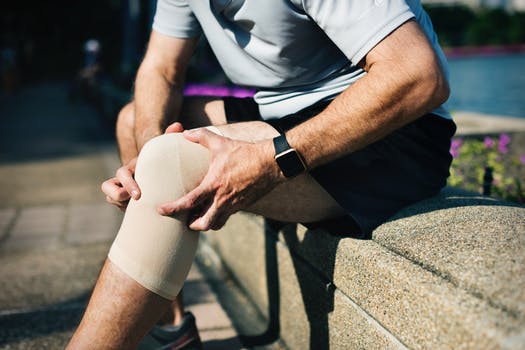
Knee pain is no stranger to millions of adults in the U.S., especially athletes, like runners, older adults over the age of 65, and overweight or obese adults. While knee pain has long been a troublesome companion when it comes to comfort and mobility levels, new research is showing how it may contribute to depression too.
Common Causes of Knee Pain
As the largest joint in the body, the knee plays a critical role in your mobility and overall health. A range of factors, including injury and some chronic medical conditions, can negatively impact the knee joint, leading to pain, stiffness, tenderness, instability, weakness, and limited range of motion.
Common causes of knee pain include:
- Osteoarthritis (OA) – long-term degeneration of the cartilage in your knee can lead to this painful form of arthritis. Wear and tear over the years can deteriorate this natural joint cushion and leave bones grinding against one another during movement.
- Tendonitis – various forms of tendonitis can affect the knee joint including common conditions colloquially known as “runner’s knee” and “jumper’s knee.” When tendons in the knee joint, i.e. the patellar tendon that connects your quadricep to your shinbone, become irritated from overuse, it results in inflammation and pain.
- Bursitis – the fluid-filled sacs called bursae which reside on the outside of your body’s joints, including the knees, can be aggravated by injury or infection leading to inflammation that increases the friction when ligaments and tendons in the joint move over one another.
- Ligament strains and tears – ligaments in the knee, like the ACL (anterior cruciate ligament) and MCL (medial collateral ligament), help connect the upper and lower leg bones to prevent overextension. Straining and tearing these important ligaments (typically during sports play) can severely reduce your ability to use your knee comfortably.
Additional sources of knee pain include iliotibial band syndrome, dislocated or fractured kneecap, other types of arthritis, and infection.
Consequences of Knee Pain
While knee pain seems like a consequence in itself, it often serves as the first domino to fall in a cascade of health issues that may also include back pain, difficulty walking and standing, weight gain, trouble sleeping, anxiety and depression.
If you think about it, knee pain which inhibits normal mobility will naturally make it harder to exercise and remain self-reliant. Lack of physical activity can quickly add up to packing on unwanted pounds, socially isolating yourself, and increasing your risk for lifestyle diseases like high blood pressure, diabetes, and heart disease.
Knee Pain and Depression
Growing bodies of evidence are revealing ever-clearer links between pain and anxiety and depression. Some research has shown that the stress from bearing chronic pain day in and day out can result in biochemical imbalances between hormones and other neurochemicals your body produces under stress (cortisol, serotonin, etc). This can not only incite depression but lead to changes in behavior, decision-making, mood, and thinking.
On the flip side, depression can inhibit how you deal with pain, possibly amplifying your perception of pain and weakening your ability to cope with it like you might otherwise if you weren’t also feeling depressed. What people suffering from chronic knee pain might encounter is symptoms of depression that make it harder to manage the injury or condition contributing to their knee pain in the first place, thus making their knee pain worse and their depression deeper and so on and so forth.
Knee pain can also make handling daily tasks like getting dressed and driving more difficult and this, in turn, can squash any sense of independence. One 2018 study published in the Journal of the American Geriatrics Society found that older adults who specifically experienced knee pain at night when in bed, getting in and out of the car, and when putting on socks were more likely to report symptoms of depression.
Other scientific associations between knee pain and depression point specifically to inflammation. Inflammation associated with medical conditions affecting the knee (like arthritis) may result in the immune system over-producing certain proteins known as c-reactive proteins. A 2016 study published in The Journal of Clinical Psychiatry found that depression was associated with higher than normal levels of this protein.
Treating Knee Pain
The first step in addressing knee pain is to find out what’s causing it. This may involve working with your doctor and having imaging and blood tests done. Depending on what you are dealing with, i.e. a fitness injury or age-related arthritis, your treatment plan may vary.
For mild fitness injuries, you may find that wearing a knee brace alleviates stiffness of the knee, or that icing and elevating your knee after physical activity limits the swelling and discomfort. For arthritis-sufferers, you may be dealing with basic management techniques to minimize pain like taking anti-inflammatories, avoiding high-impact activity, and compressing the joint. In severe cases, surgical intervention will be pursued to correct the knee joint, whether it’s reattaching torn ligaments or replacing the knee altogether.
It is critical that both clinicians and patients keep an eye out for warning signs of depression as it relates to coping with chronic knee pain. While seemingly separate, the two can be deeply connected and acknowledging this may benefit your treatment plan.


